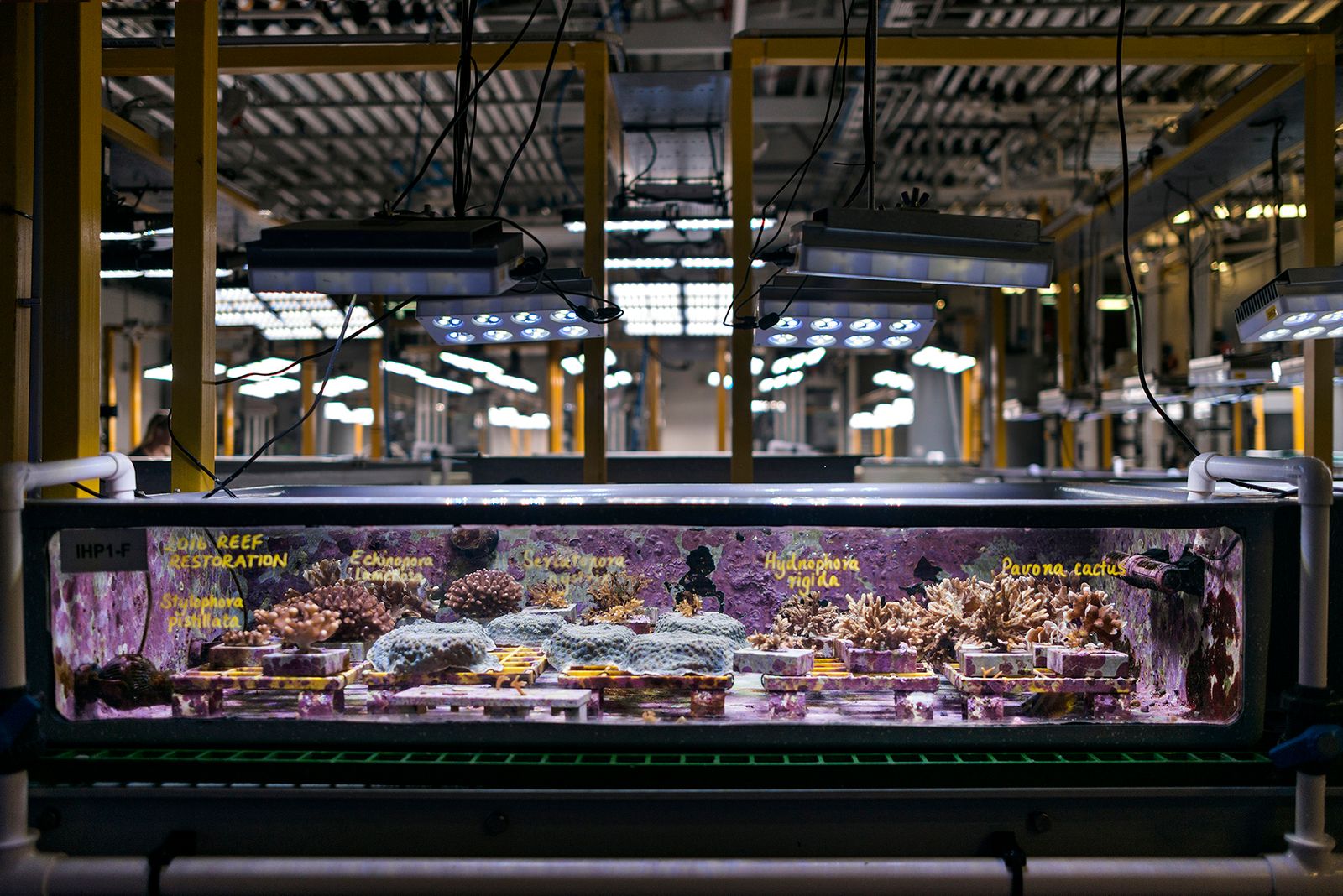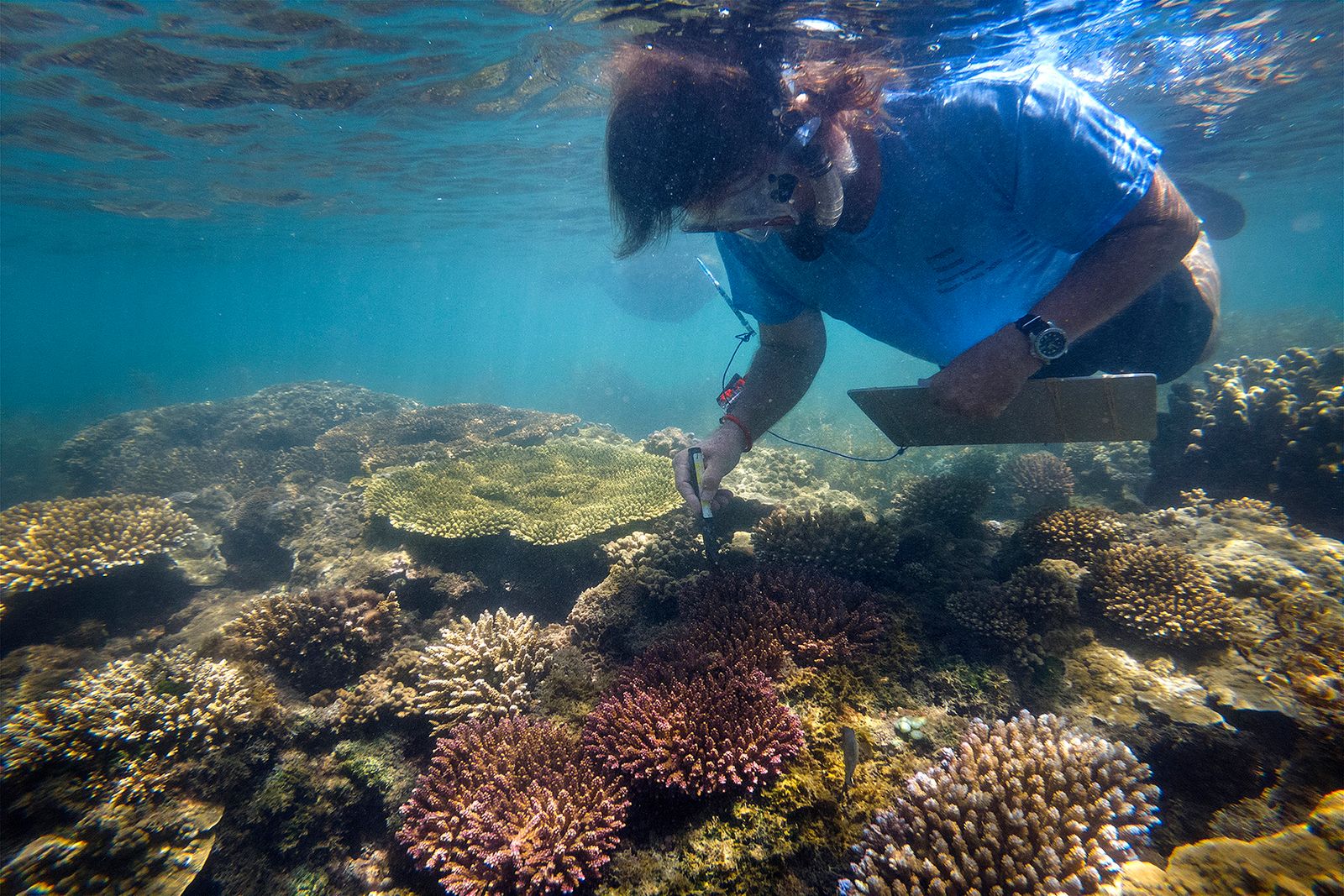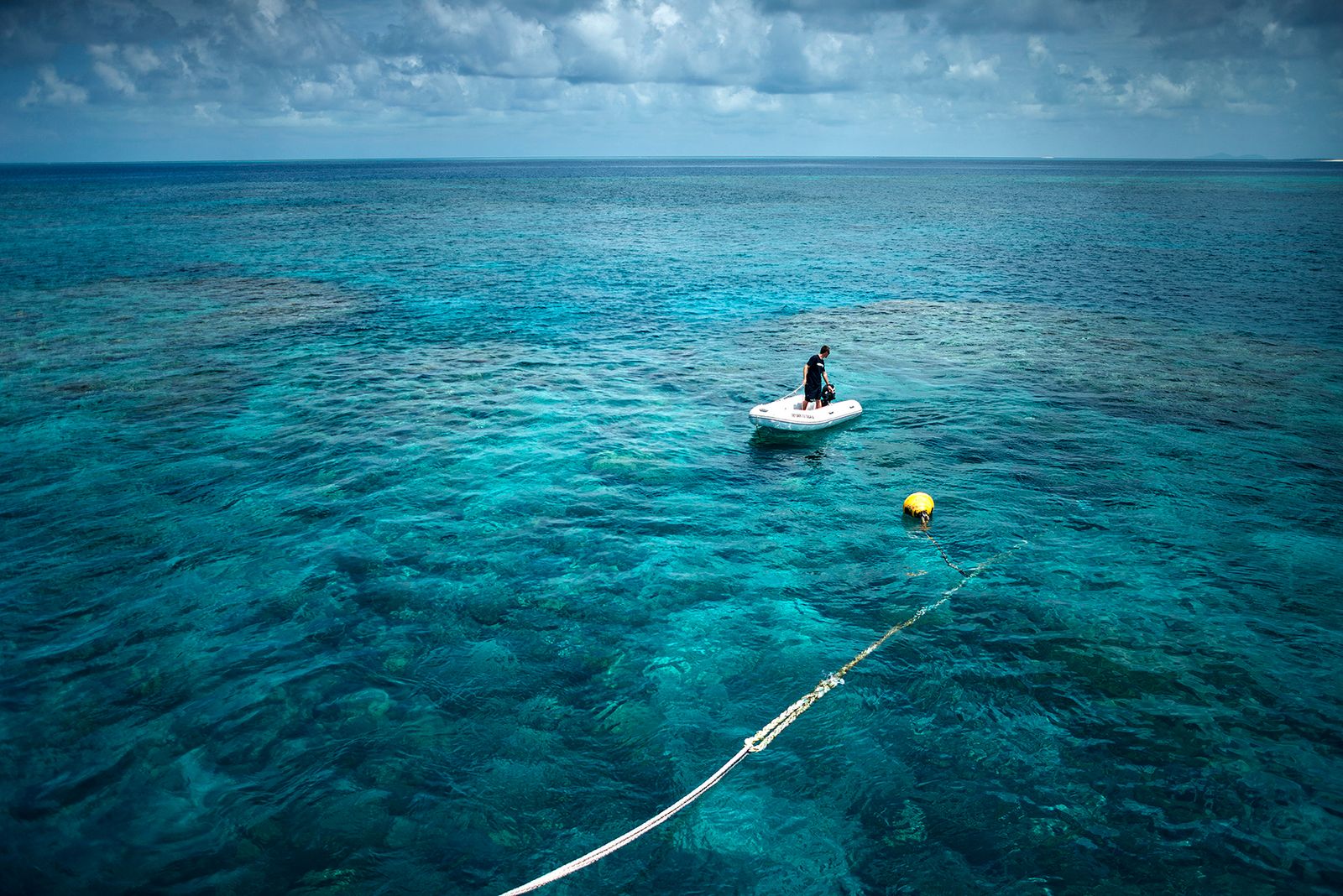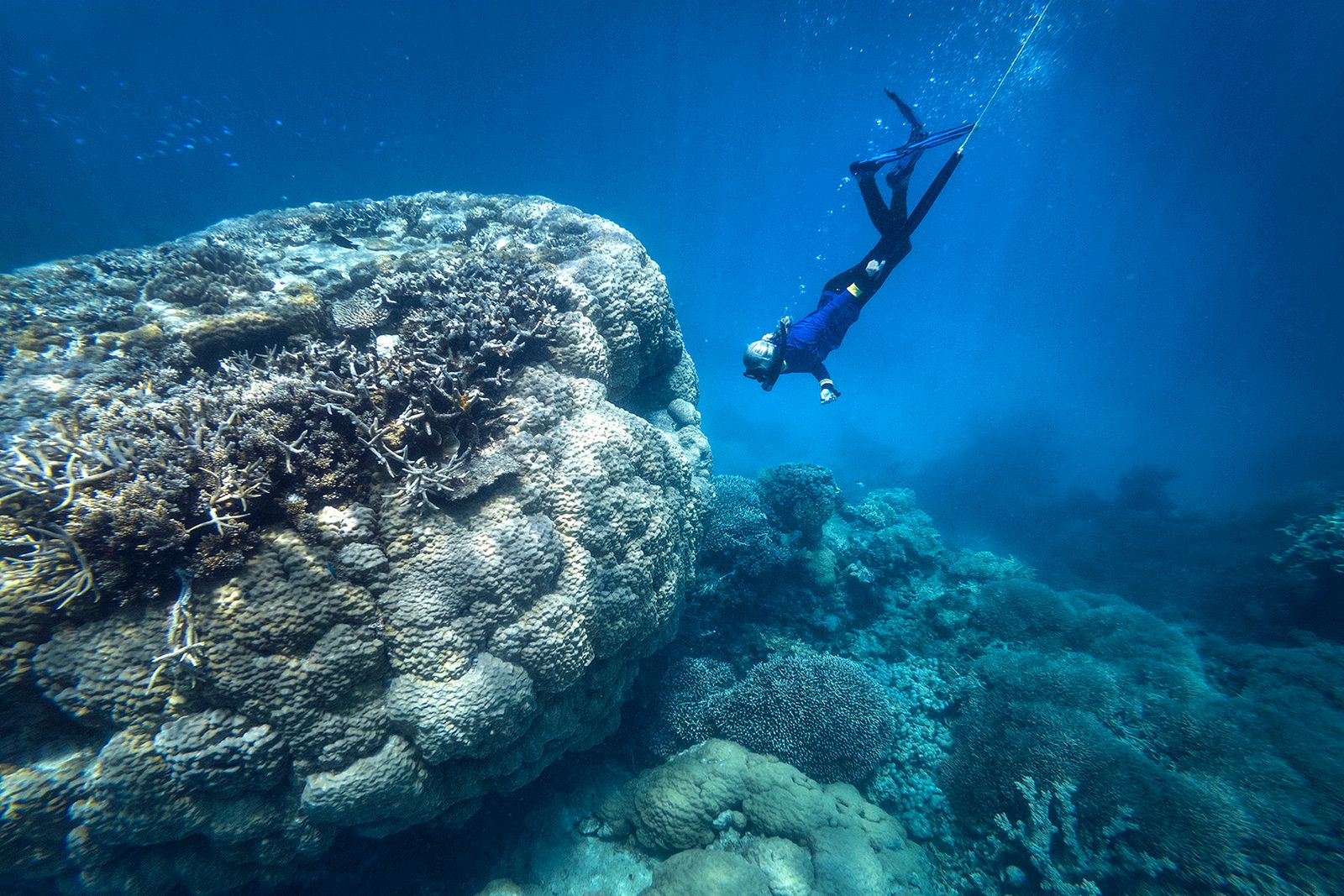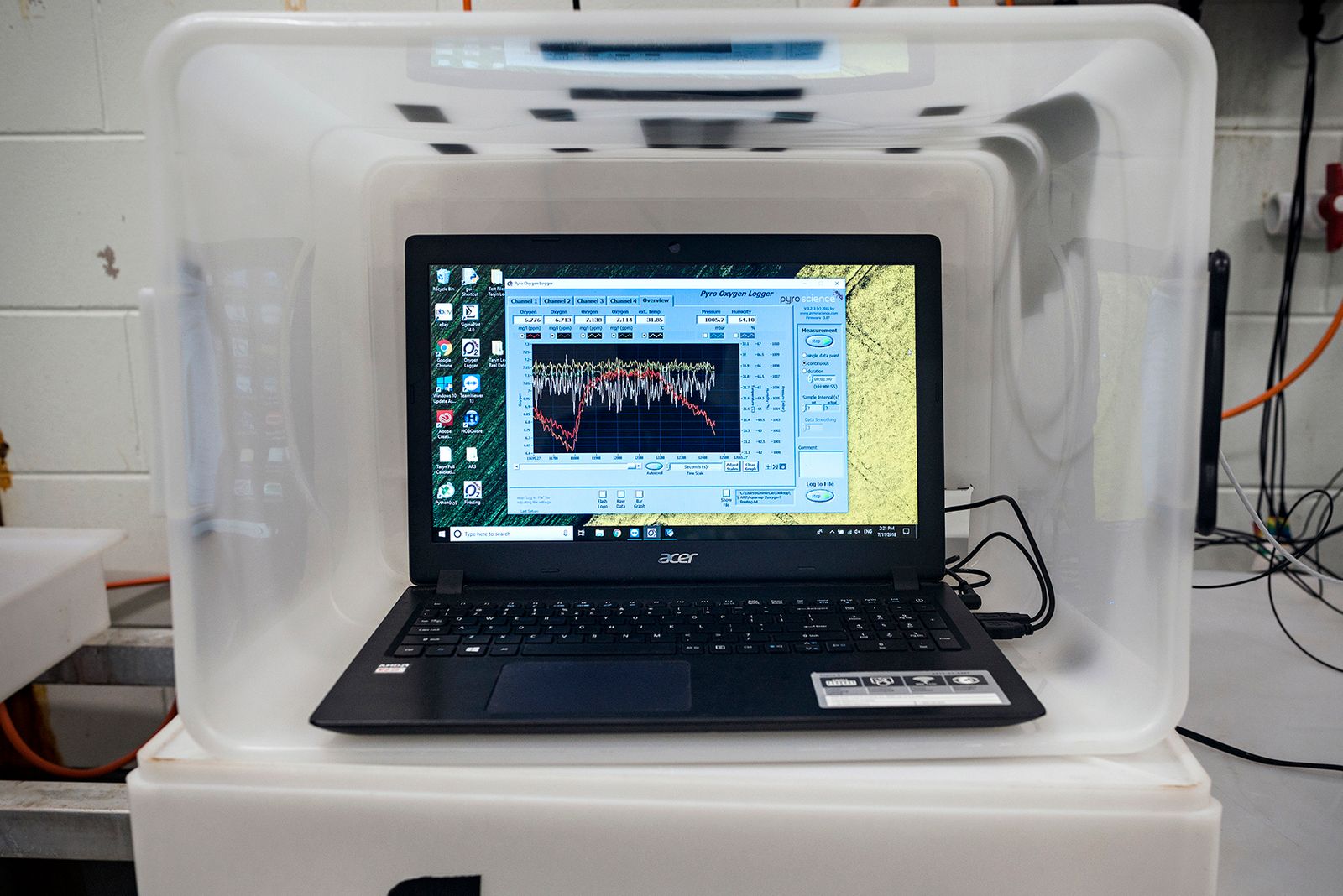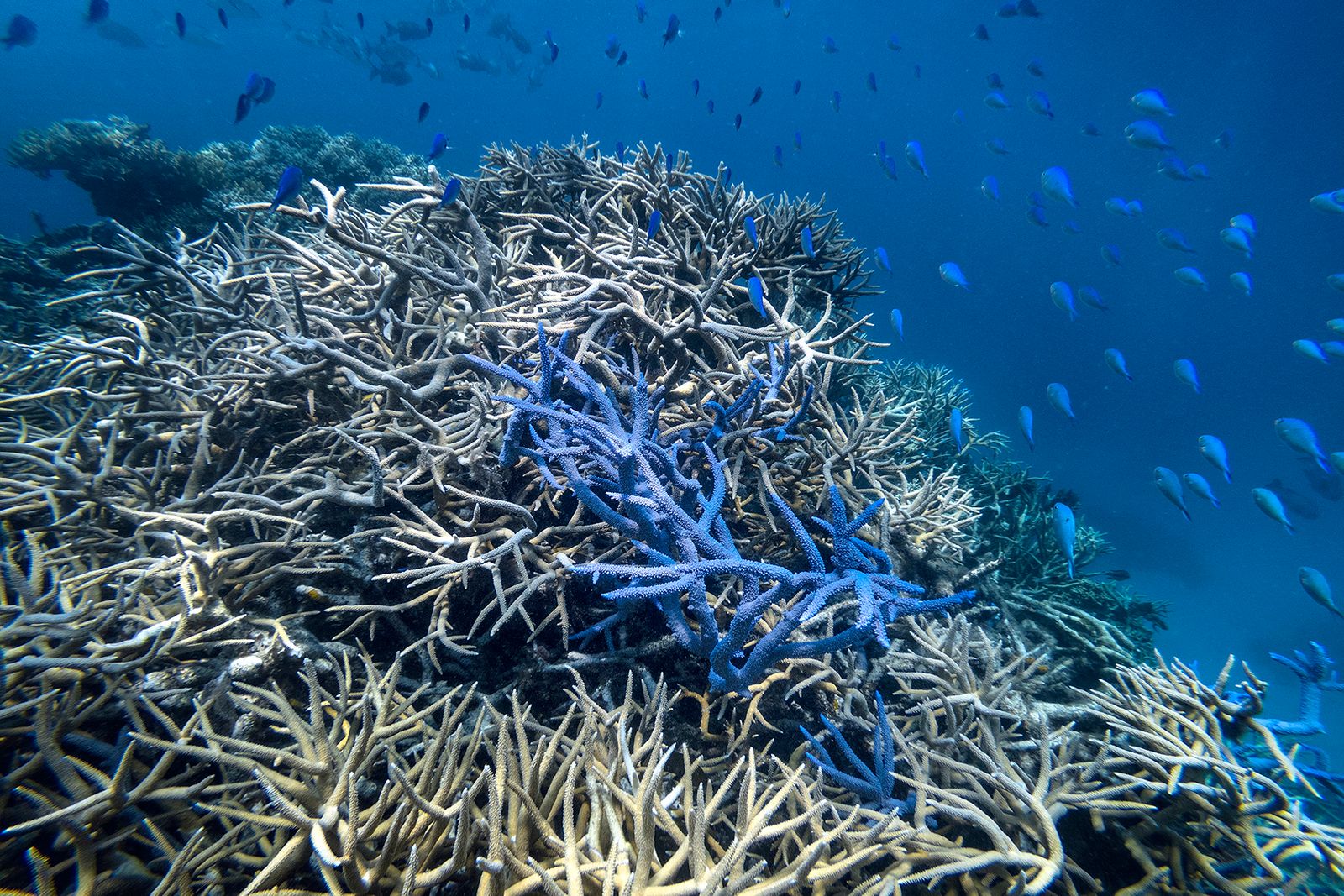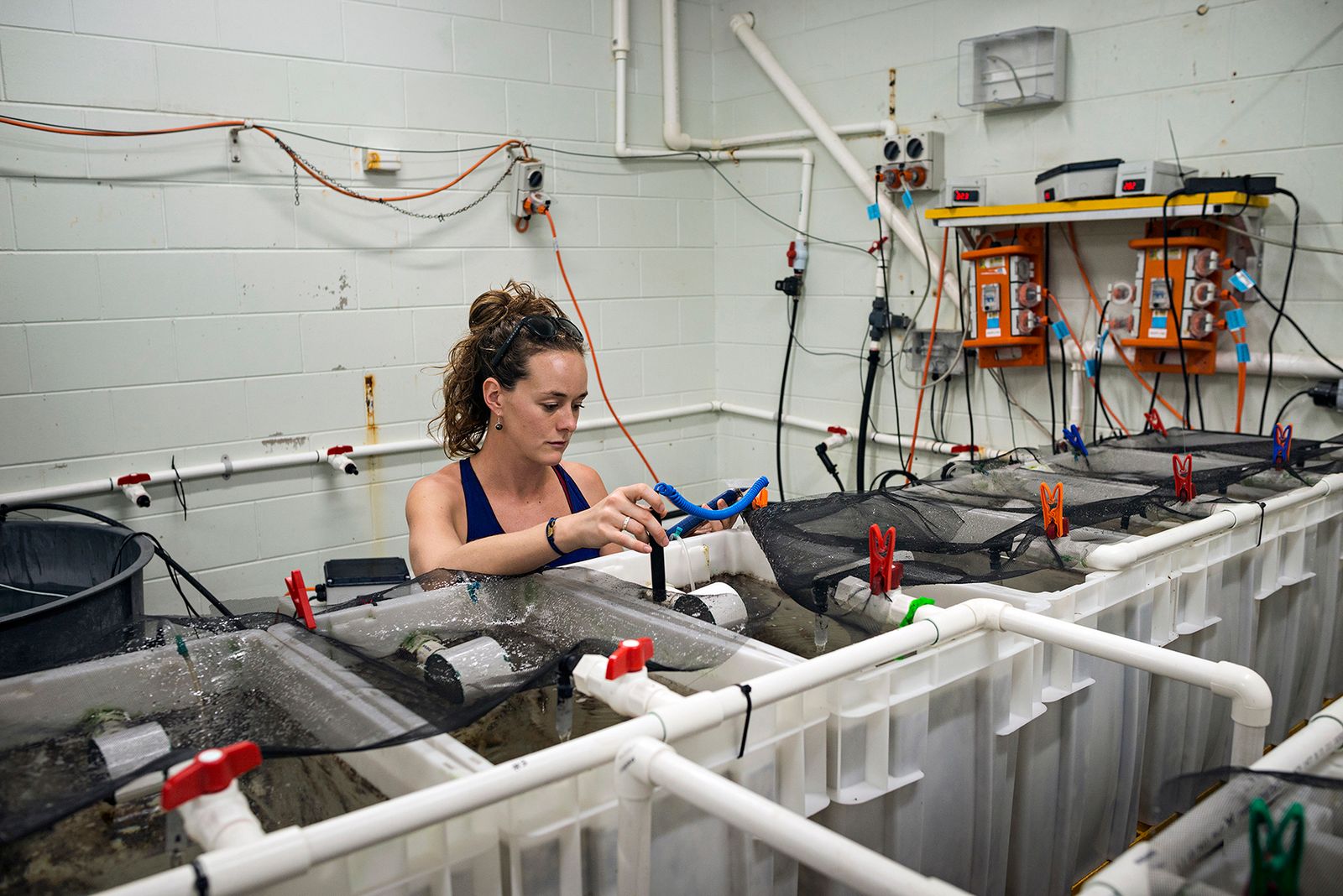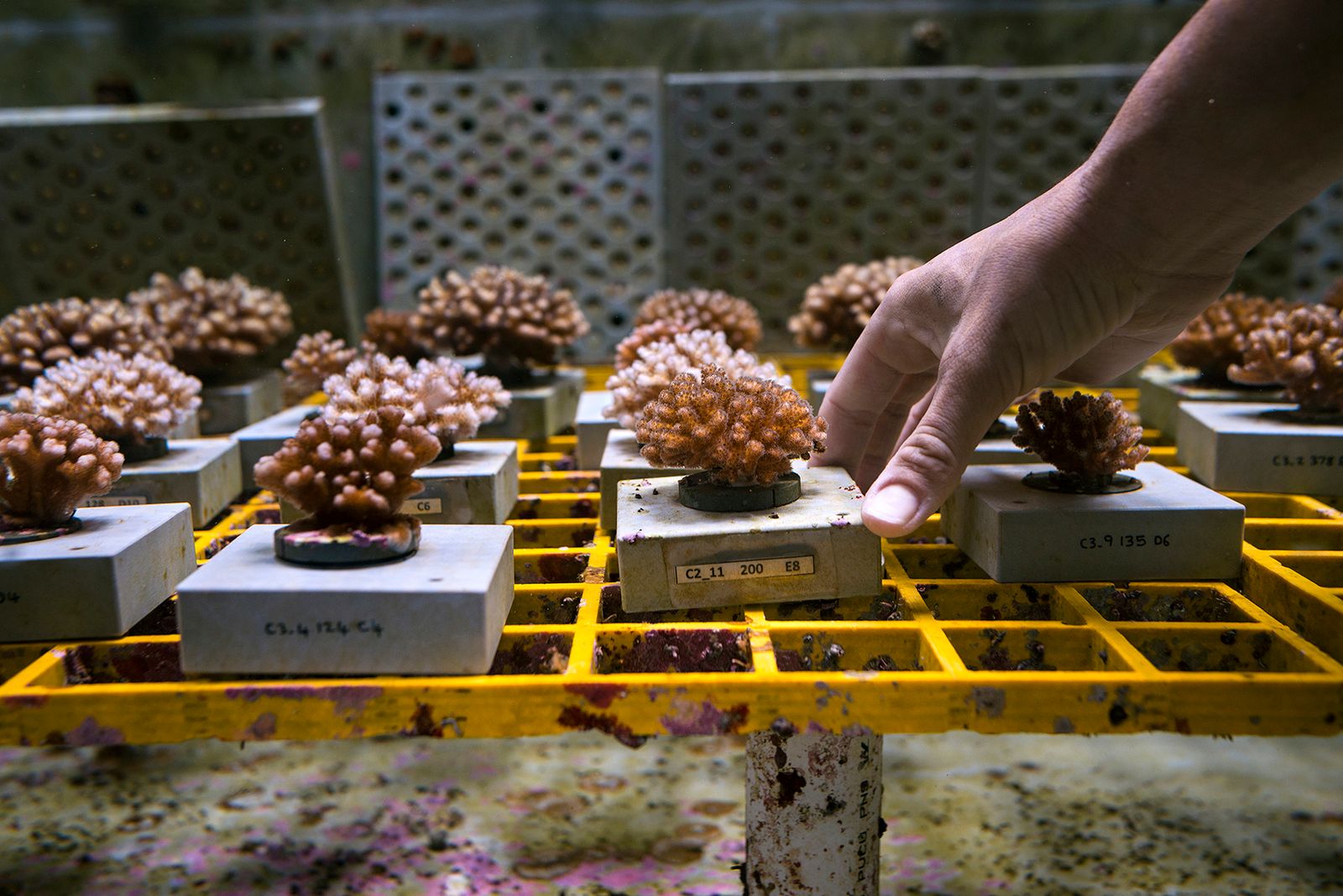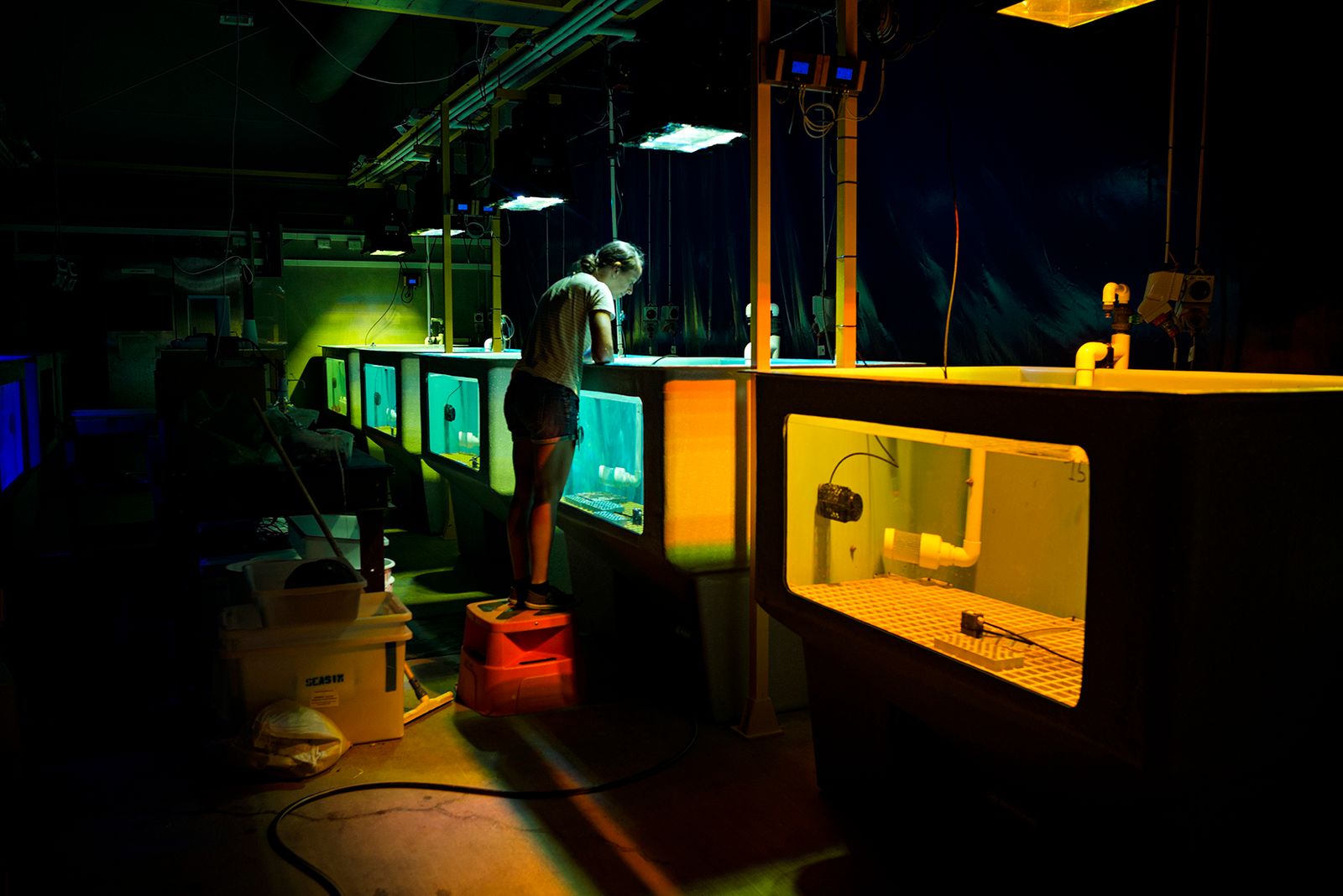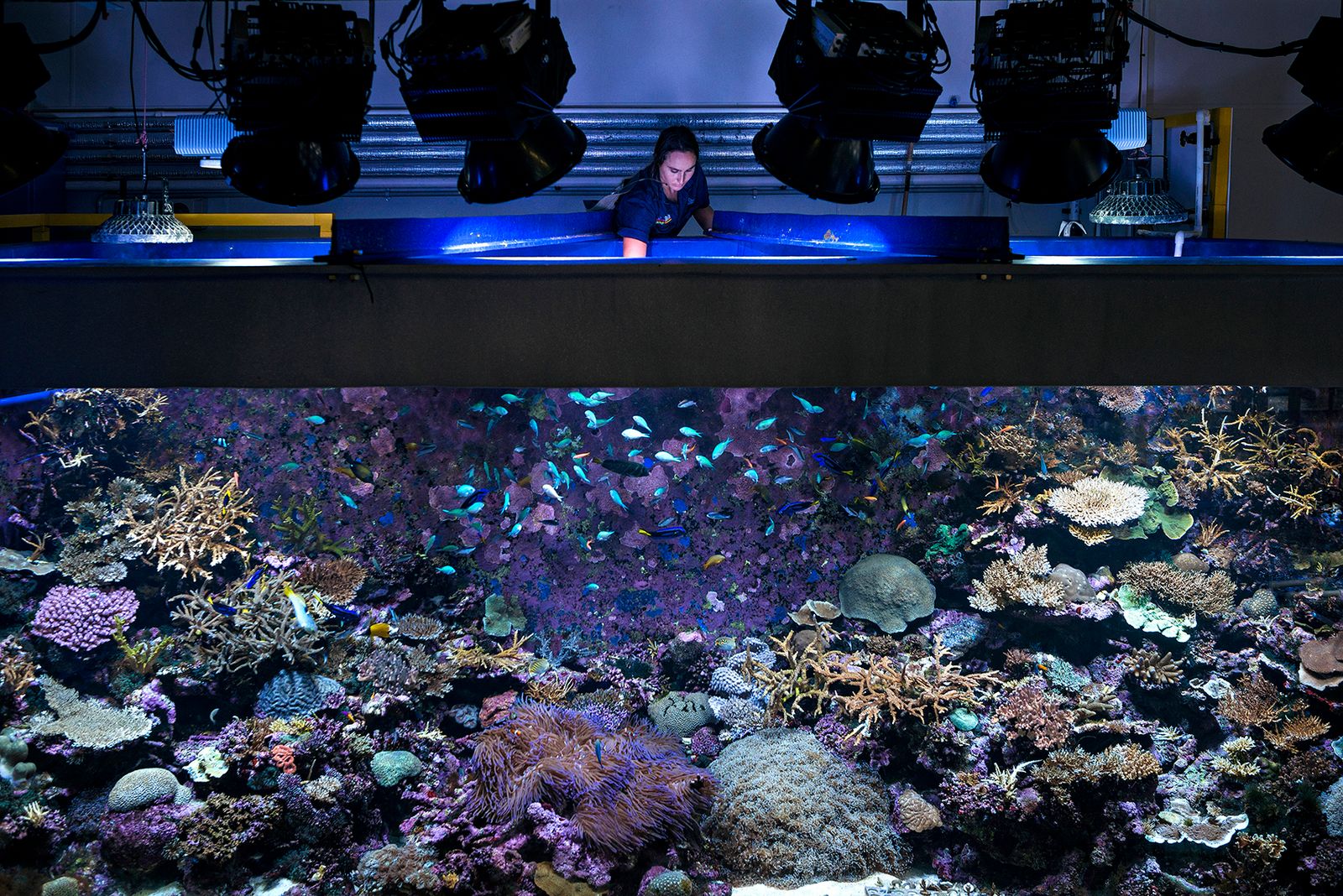Submerged Conscience
-
Dates2018 - 2018
-
Author
In an era of rapid environmental shifts, social changes and unprecedented economic development, a worldwide demand and need for a relevant research against the effect of climate change on the environment has never been greater or more urgent. Globally, more than 300 million people depend on the ecosystem services that coral reefs provide, for their livelihoods and food security. Listed as one of the seven natural wonders of the world, the Great Barrier Reef has been registered on the World Heritage List in 1981 (UNESCO Convention), indicating the importance of the GBR to the world. Coral reefs are rapidly degrading due to multiple pressures such as climate change, overfishing and pollution. The principal risk related to the ocean warming is the spread phenomenon of corals bleaching. Since the 1980s, rising sea surface temperature owing to global warming have triggered unprecedented mass bleaching of corals. Thermal stress during marine heatwaves disrupts the symbiotic relationship between corals and their algal symbionts, causing the corals to lose their color. Bleached corals suffer physiological damages and prolonged bleaching often leads to high levels of coral mortality. Increasingly, individual reefs are experiencing multiple bouts of bleaching, as well as the effects of more chronic local stressors such as pollution and overfishing. The geographic footprints of mass bleaching of corals on the GBR have varied markedly during three major events in 1998, 2002 and 2016. In 1998, bleaching was primarily coastal and most severe in the central and southern regions. In 2002, bleaching was more widespread, and affected offshore reefs in the central region that had escaped in 1998. In 2016, bleaching was even more extensive and much more severe, especially in the northern regions, and to a lesser extent of the central regions, where many coastal, mid-shelf and offshore reefs were affected. The cumulative, combined footprint of all three major bleaching events now covers almost the entire Great Barrier Reef Marine Park. The recovery time for coral species that are good colonizers and fast growers is 10-15 years, but when long-lived corals die from bleaching their replacement will necessarily take many decades. According to the studies conducted by the most important Australian authorities that are working for the coral reef's safeguard such as the AIMS (Australian Institute of Marine Science), the JCU (James Cook University) and the ARC (Centre of Excellence for Coral Reef Studies), the Great Barrier Reef has lost half of its coral cover since 1985 due to a combination of diverse components such as ocean acidification and water quality. Furthermore, the poor water quality seems responsible for the periodic Crown-of-Thorns starfish outbreak, which is increasing during the last years. The Crown-of-Thorns starfish are extremely dangerous for corals colonies because they feed on them, wiping out entire hard coral communities that encounter on their path. The challenge worldwide is therefore to steer reefs through this period of continued warming. In order to fight the effects of climate change on the Great Barrier Reef, different marine authorities are conducting researches and experiments with the aim of finding a solution for the protection and the safeguard of the reefs of the world. During the last years, AIMS with the joined work of JCU and ARC researchers, is developing a significant project about assisted evolution, creating hybrid corals more resilient to bleaching events. The scientists are studying a heat-resistant strain, a "Super-Coral" that could withstand the rising ocean temperatures. The breakthrough research raises hopes for one day to counteract some of the effects of coral bleaching, which are ravaging large parts of the reef. Not all these interventions taken by the global and local authorities might be enough in order to secure a future for coral reefs. The risk of an extinction of the reefs in the world is more than ever real and this requires urgent and rapid actions to reduce global warming. Securing biodiversity and ecosystems for future generations requires new governance frameworks and fresh approaches to ecosystem management. We should not give up hope for the persistence of Earth's coral reefs. Importantly, governance approaches will need to integrate knowledge of human psychology and risk perception in ways that convey the seriousness of the challenges without generating hopelessness or despair. To steer coral reefs through the next century, we will need to be bold, aware of their importance and most of all responsible of our actions as human being part of this wonderful planet called Earth.
